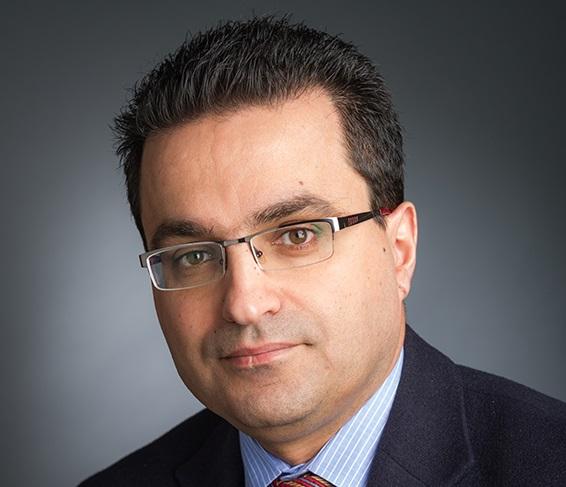New Roadmap for Improving Thyroid Cancer Care in Low- and Middle-Income Countries Being Unveiled
A new global resource to improve thyroid cancer care in low- and middle-income countries developed by the National Comprehensive Cancer Network (NCCN) will be introduced at the upcoming World Congress on Thyroid Cancer in London.
During the event, NCCN Senior Vice President and Chief Medical Officer, Wui-Jin Koh, MD, will present on NCCN’s ongoing global work to define and advance high-quality, high-value, patient-centered cancer care. As part of that work, the non-profit alliance of leading cancer centers recently published the new NCCN Framework for Resource Stratification of NCCN Guidelines (NCCN Framework™) for Thyroid Carcinoma, available free-of-charge at NCCN.org/global. The new resource will debut in front of more than 1,000 cancer care providers from across the globe on June 17, 2023
Robert Haddad, MD, Division Chief, Center for Head and Neck Oncology at Dana-Farber Cancer Institute and Professor of Medicine, Harvard Medical School, is the Chair of the multi-disciplinary panel of experts from across NCCN’s Member Institutions responsible for updating and maintaining the NCCN Guidelines for Thyroid Carcinoma. He also took a lead role in creating the NCCN Framework™ for Thyroid Carcinoma and will help present this new resource at the World Congress.
“We analyze all of the available evidence and review it with our colleagues and fellow panel members at least once a year, and sometimes more often, to make sure the NCCN Guidelines reflect the very latest research and best practices,” said Dr. Haddad. “In the process of developing this NCCN Framework, we worked with the World Congress on Thyroid Cancer to solicit feedback from all over the world. We really appreciate everyone’s efforts helping us set standards for optimally tailoring resource-stratified recommendations to maximally benefit all people with thyroid cancer globally.”
NCCN Framework™ exists for numerous cancer types—covering more than 80 percent of cancer diagnoses—plus supportive care topics such as pain management, palliative care, and breast cancer prevention and detection. The NCCN Framework™ for Thyroid Carcinoma is the first new cancer type to be added to this library in recent years. More than 500,000 people are diagnosed with thyroid cancer worldwide every year.1 The NCCN Framework™ for Thyroid Carcinoma provides guidance on the optimal treatment approach for differentiated thyroid cancers in resource-constrained settings.
“The NCCN Framework establishes a realistic baseline of care tailored to various resource levels. It also showcases which future investments could be most effective,” said Robert W. Carlson, MD, Chief Executive Officer, NCCN. “These tools represent NCCN’s longstanding commitment to improving equity and outcomes for people with cancer, no matter where they live. More than 800,000 registered users outside the United States rely on the NCCN Guidelines to provide the latest evidence-based expert consensus cancer treatment recommendations. We want to make sure we’re providing accessible advice which improves outcomes for everyone.”
The NCCN Framework™ stratify the gold-standard recommendations from the NCCN Clinical Practice Guidelines in Oncology (NCCN Guidelines®) into 3 different resource levels (Basic, Core and Enhanced). The recommendations at each level are color-coded so that the resource stratified recommendations can be viewed within the context of the NCCN Guidelines®. The NCCN Framework™ resources are defined as follows:
- Basic resources—Essential services needed to provide basic minimal standard of care.
- Core resources—Includes services provided in the Framework for Basic Resources plus additional services that provide major improvements in disease outcomes (e.g. survival) that are not cost-prohibitive.
- Enhanced resources—Services provided in the Framework for Core Resources and additional services that provide lesser improvements in disease outcomes and/or services that provide major improvements in disease outcomes but are cost-prohibitive in lower resource settings.
*This press release was adapted from a press release issued by NCCN.
Media Contacts
If you are a journalist and have a question about this story, please call 617-632-4090 and ask to speak to a member of the media team, or email media@dfci.harvard.edu.
The Media Team cannot respond to patient inquiries. For more information, please see Contact Us.
